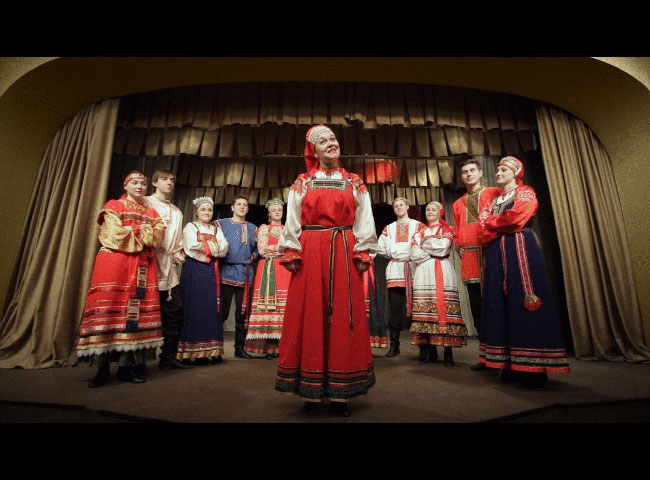Cinetrain : Russian Winter
-
Réalisé par Tristan Daws, Dieter Deswarte, Benny Jaberg, Cristina Picchi, Sandhya Daisy Sundaram, Bernadett Tuza-Ritter • Écrit par Tristan Daws, Dieter Deswarte, Benny Jaberg, Cristina Picchi, Sandhya Daisy Sundaram, Bernadett Tuza-Ritter
-
Russie, France • 2013 • 90 minutes • HD • Couleur
- Réalisation :
Tristan Daws, Dieter Deswarte, Benny Jaberg, Cristina Picchi, Sandhya Daisy Sundaram, Bernadett Tuza-Ritter - Écriture :
Tristan Daws, Dieter Deswarte, Benny Jaberg, Cristina Picchi, Sandhya Daisy Sundaram, Bernadett Tuza-Ritter - Image :
Saulius Lukosevicius, Alexey Phillipov, Joona Pettersson, Annegret Sachse, Stephan Bookas, John Craine - Son :
Henri d' Armancourt, Marcin Knyziak, Xavier Thieulin, Yulia Glukhova, Vladimir Rizun
- Production (structure) :
Mirumir Studio - Ayant droit :
Mirumir Studio
- N° ISAN :
non renseigné
Résumé
Elle avait rêvé d'être danseuse, mais a travaillé comme grutière pendant l'ère communiste et depuis vingt ans, Ludmilla effectue désormais quatre fois par mois l'aller-retour Moscou-Tomsk (presque 3 000 km) en train, comme femme de ménage. C'est également depuis la capitale qu'une vingtaine de cinéastes sont partis, en empruntant eux aussi la voie ferrée pour parcourir quelque 10 000 km, à la rencontre de quelques-uns des représentants du peuple russe et comprendre comment ils se représentent : monté en fonction de quelques thèmes choisis au montage (l'hiver, les femmes, la vodka, les ours, l'âme russe...), Cinetrain : Russian Winter est donc un film choral qui rend hommage à l'expérience menée par Alexandre Medvedkine qui avait parcouru l'Union soviétique en 1932 à bord de son "cinétrain" afin d'y filmer la population laborieuse des villes et des campagnes. C'était l'époque eschatologique du socialisme triomphant, et le cinéma devait agir comme le révélateur d'un peuple en pleine mutation. Mais le rêve s'est évanoui, peut-être emporté par l’une de ces tempêtes de neige propres à l'hiver russe, qui sert de cadre inspirant à cette quête cinématographique filmée à hauteur d'homme. (Emmanuel Chicon)
She had dreamed of being a dancer, but worked as a crane operator during the Communist era and, for twenty years, Ludmilla has now been taking a train journey four times a month from Moscow to Tomsk return (almost 3,000 km), working as a cleaning lady, always moving between two points in the immense space of Russia. Also departing from the capital are twenty filmmakers, likewise using the railway to travel some 10,000 km in a month, to meet a few representatives of the Russian people and understand how they view themselves: redacted according to a few themes selected in the editing (winter, women, vodka, bears, the Russian soul...), Cinétrain: Russian Winter is thus a choral film that pays tribute to the experiment conducted by Aleksandr Medvedkin who travelled across the Soviet Union in 1932 aboard his "Cinétrain" to film the working people of the towns and countryside. It was the eschatological era of triumphant socialism, and the purpose of cinema was to reveal a people in transformation. But the dream has vanished, perhaps carried away by one of those snowstorms that mark the Russian winter, which serves as a frame inspiring this cinematographic quest filmed on a human scale. (Emmanuel Chicon)
Mot(s)-clé(s) thématique(s)
Sélections et distinctions
- 2014 • Visions du Réel • Nyon (Suisse) • Sesterce d'argent Prix du Public
Comment avoir accès au film ?
-
Édition DVD
- Il n'existe pas d'édition DVD à notre connaissance
-
Accès VOD
- Il n'existe pas d'accès en VOD à notre connaissance
- Distribution
- Aide sur les moyens d'accéder à un film
